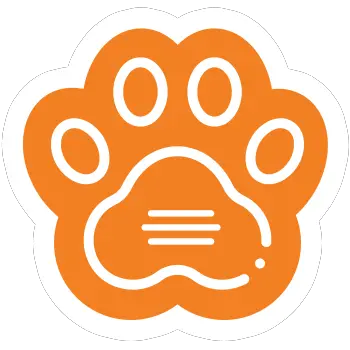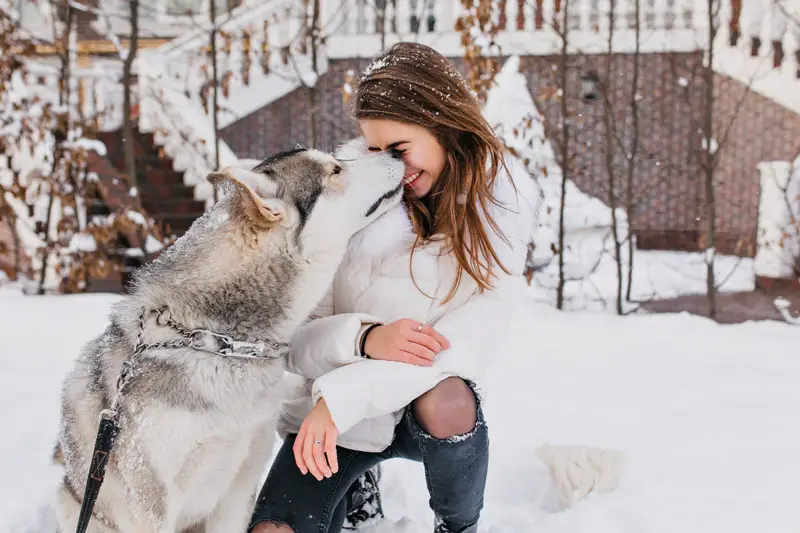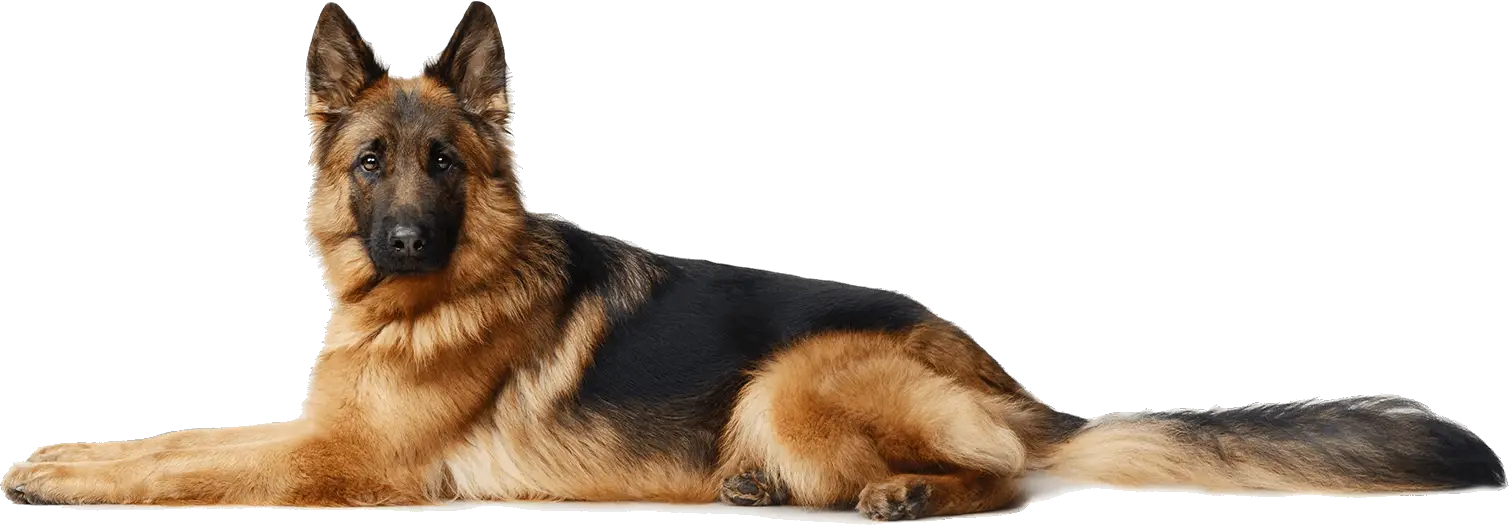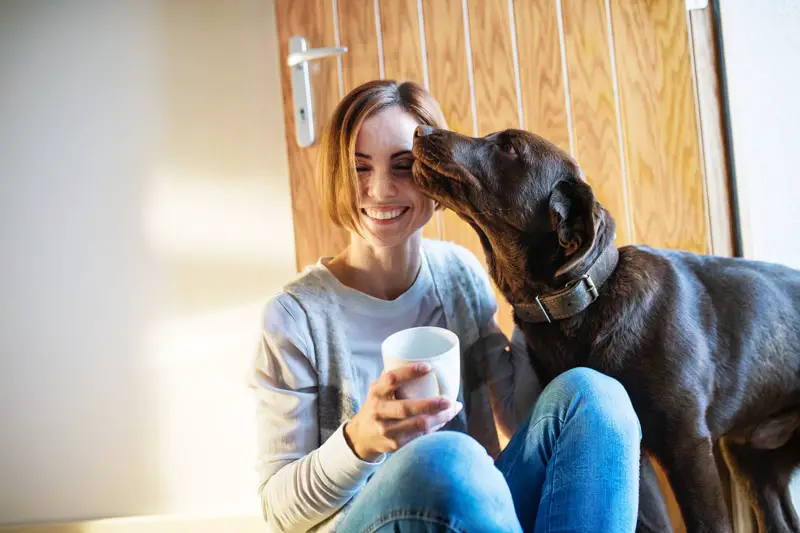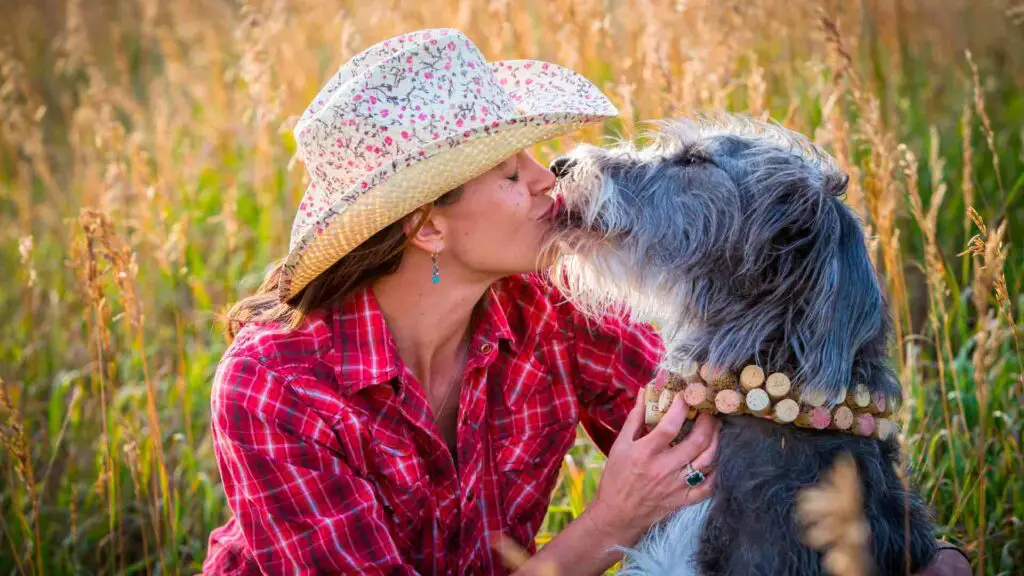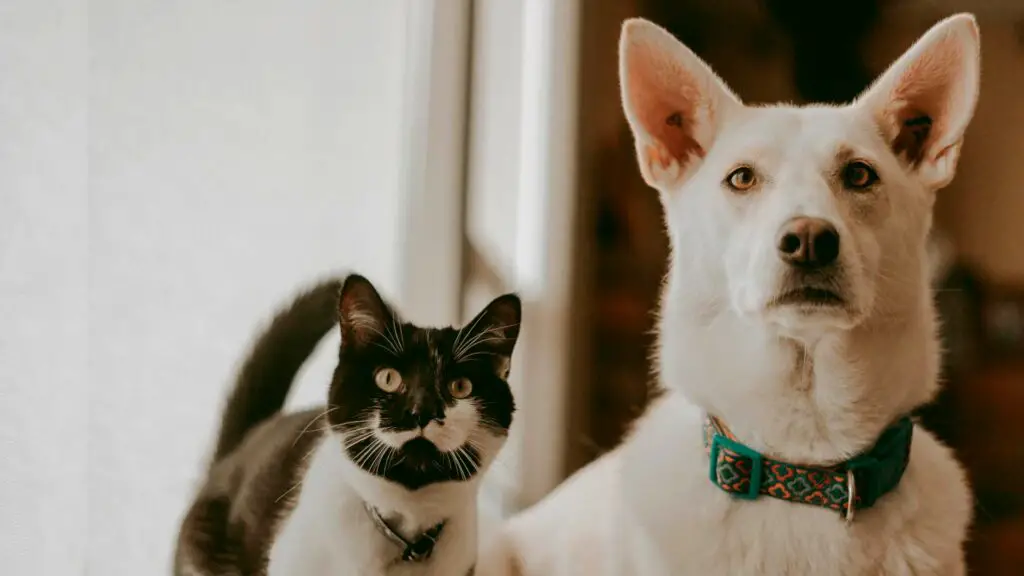Common Reasons Why Dogs Lick Owner’s Eyes
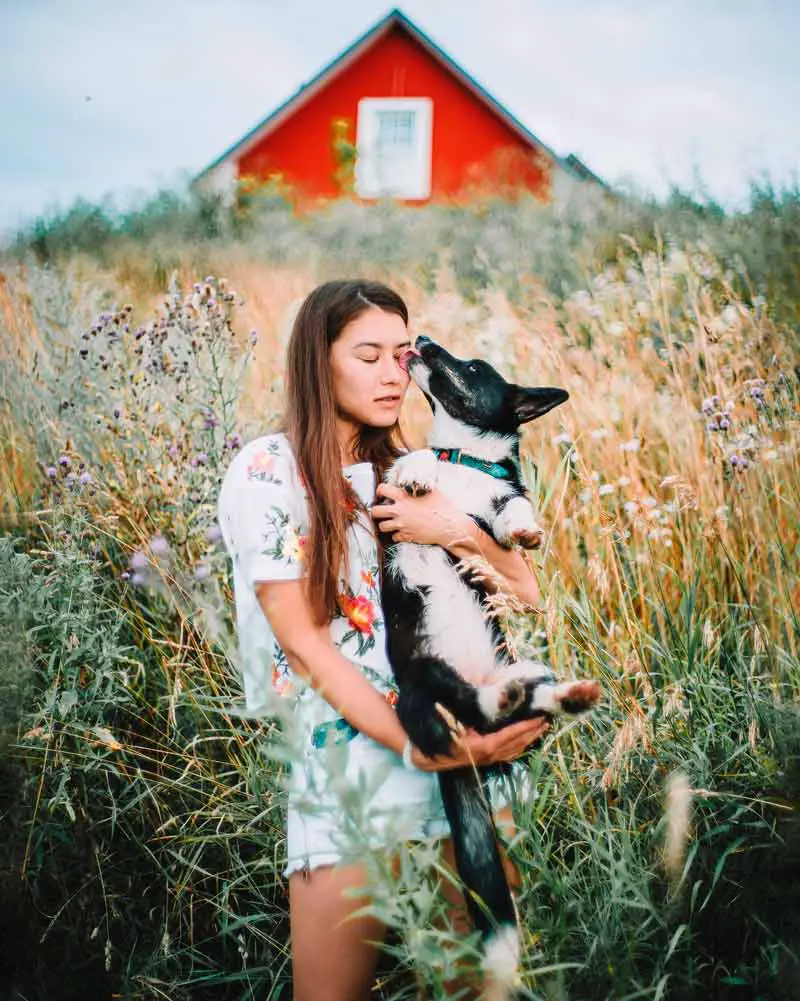
Here are some of the primary reasons why your canine friend is obsessed with your eyes.
Way of Showing Love, Duh!
Licking is one of the most prominent ways of showing love and affection towards their beloved owners. Licking your eyes to show their fondness for you is a dopamine release mechanism for puppies.
As an owner, if you respond to the licks with a hug or kiss, this acts as positive reinforcement, and the dog tends to repeat this act more often. In case you are not happy with this aspect, there is always the option to encourage them for some other behavior apart from licking. This measure will prompt them to control the licking.
Figuring Out Our Mood
Dogs rely on their different senses to gauge the emotions of their human owner. Sometimes the odor of our skin or sweat can be decoded by dogs to understand what we are currently feeling. Be it happiness, anxiety, anger, and so on.
Their tongue is not responsible for the mood decoding process. Instead, the vomeronasal organs help them gauge our mood and react accordingly. If they find out we are sad, they display the feeling of empathy. Dogs are emotional and sensitive beings.
This aspect is the reason why dogs can sense their owners’ sadness very quickly. They also lick away your tears if you are crying to comfort you and because they enjoy the salty taste of your tears.
Act of Submission
Licking the eyes is a way of showing you that you are their leader and they are your loyal companions for life. This behavior is also a technique to vent their anxiety developed in your absence.
This behavior also says that they will obey your instructions with utmost sincerity. It is also likely that they are trying to groom you by licking your eyes, nose, or chin area.
Attention Seeking Method
Most dogs crave their owner’s attention. Jimmy boy (My Labrador) is not different. If I look away from him a few times while we are sitting down in the garden, he immediately licks my eyes as if conveying, “Dad, I’m right here!”.
There is the option to redirect this behavior by spending ample time playing and interacting with your dog and giving positive reinforcements in the form of encouraging words and treats for obedience training. This action will help them take their minds off from the licking.
Boredom
If your dog is not adequately engaged in physical and mental training exercises, they will tend to feel bobbed down and bored. This situation will lead to them getting involved in unnecessary and repetitive behaviors like the excessive licking of the owner’s eyes.
To avoid this issue, make sure your dog gets its fair share of physical training like walks, outdoor games, and cognitive enhancing puzzles and toys. The extent of physical activities will depend on the age and breed of your dog.
Age of Dog
Young puppies below the age of a year are in a discovery phase. They understand things by licking and sniffing almost anything they come across.
If your dog is in this puppy face, they are probably exploring the entity that is you while they lick your eyes. This act is not a cause of concern. Naturally, this behavior would lessen with the age and maturity of the dog.
These are some of the primary reasons why your canine buddy likes licking your eyes. But any canine behavior displayed beyond a specific limit is something that requires the owner’s immediate attention. We will discuss those in the next section.

